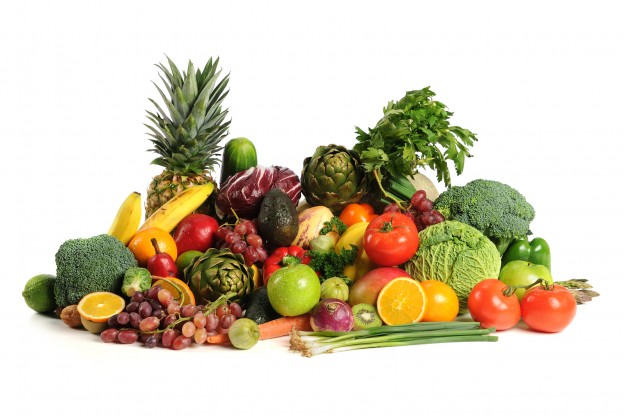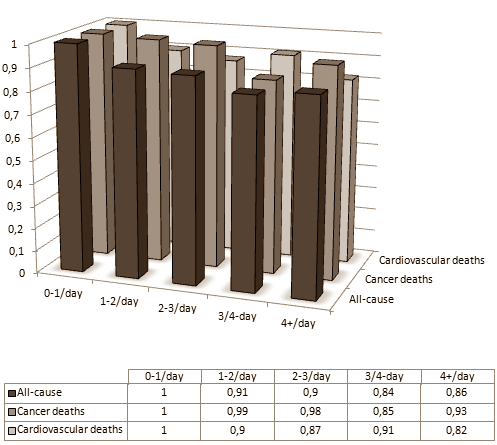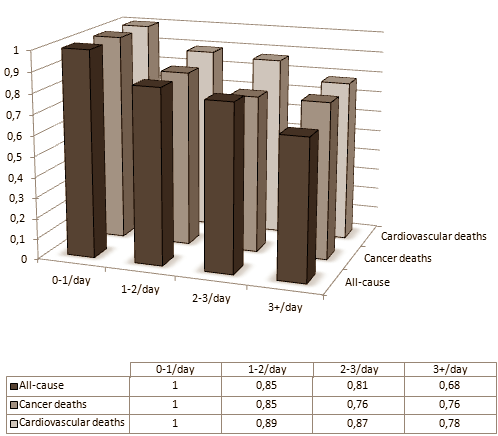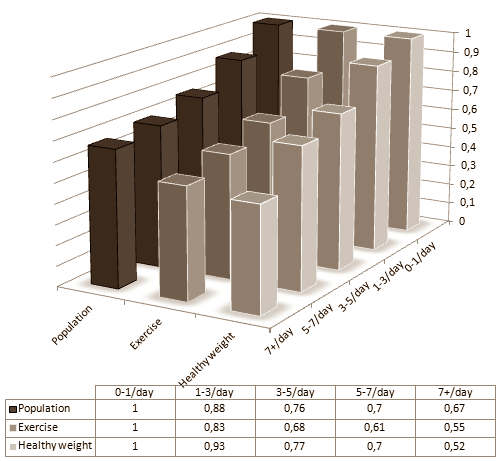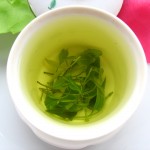Eat More Fruit & Vegetables To Live Longer
Blog Entry #77
By Admin – Steroidal.com
There is much debate about what’s better for longevity, pills or solid food, fruit or vegetables, fats, meats or leading a vegetarian type diet? This debate has gone on for decades with nutritionists often claiming a colourful diet it best for mortality, whilst the supplement industry will suggest taking a long list of supplements is more effective. So what does the latest data say?
Regardless of it being supplements, herbs or drugs, almost all these products must go through strict testing procedures before being sanctioned for human use by the Food and Drugs Administration (FDA) in the United States. Lab animals will be used first and can show promising results, only for human testing to not be as effective.
In April 2013 US researchers in California tested to see if supplementing with blueberry, cinnamon, green and black tea, pomegranate, sesame, curcumin, morin, pycnogenol and quercetin would extend the lifespan of mice, it didn’t [1].
The US researchers conclude, “Together, our results do not support the idea that isolated phytonutrient anti-oxidants and anti-inflammatories are potential longevity therapeutics, even though consumption of whole fruits and vegetables is associated with enhanced health span and life span.”
Specialist live extension marketed products, such as Javenon, Ortho Core and Life Extension mix, were given to mice at the same University of California, in a study published recently in April 2014, showing little effect [2].
This time the Californian researchers write, “Thus, our results do not support the hypothesis that simple or complex combinations of nutraceuticals, including antioxidants, are effective in delaying the onset or progress of the major causes of death in mice. The results are consistent with epidemiological studies suggesting that dietary supplements are not beneficial and even may be harmful for otherwise healthy individuals.”
Animal studies are good and give us some indication of results, but what about human data?
A new April 2014 study about to be published in Epidemiology and Community Health, looked at the relationship between vegetable and fruit intake on mortality [3]. A large 65,226 British subjects over 35 were looked at for almost eight years.
The figure above shows the relationship between mortality and the average intake of fruit. Eating more than four pieces of fruit per day meant a 14% lower mortality rate than the subjects who ate no fruit at all.
The figure below shows the relationship between vegetable intake and life expectancy. Consuming more than three portions of vegetables per day meant a 32% reduction in their mortality risk, meaning they’d live longer. This was compared to those who ate no vegetables.
You’d think combining fruit and vegetables would have a large cumulative effect, but it didn’t. The figure above shows it certainly helped though.
The participants who ate vegetables and/or fruit more than 7 times a day had a 33% lower mortality rate than the participants who ate no fruit or vegetables at all. But who really eats no fruit or vegetables per day anyway? If you’re an athlete, bodybuilder, anabolic steroid user, or just like keeping fit, you’d know fruit and vegetables should be part of your daily diet. The figure also shows that exercising regularly and maintained a healthy weight more than halved their mortality risk.
“The clear message here is that the more fruit and vegetables you eat, the less likely you are to die at any age,” said study author Dr. Oyinlola Oyebode. “My advice would be however much you are eating now, eat more.”
Source:
[1]. Rejuvenation Res. 2013 Apr;16(2):143-51.
[2]. Age (Dordr). 2014 Apr;36(2):705-18.
[3]. J Epidemiol Community Health. 2014 Mar 31. doi: 10.1136/jech-2013-203500.




